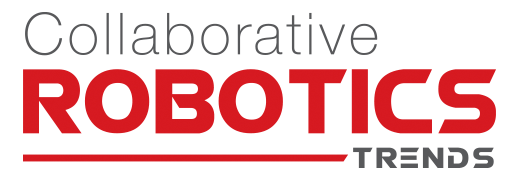
The Danish city of Odense has 200,000 citizens, but how did it become a world leader in robotics?
Let’s turn back time just 15 years to the period around the financial crisis. Back then, Denmark was a fairly anonymous country in the global, innovative robotics market. And Odense was best known as the birthplace of the fairytale writer Hans Christian Andersen.
Today, things are very different. Danish robotics technology has become a global seal of approval, and people talk about robots as much as Lego bricks, wind energy, and pharma when discussing the strengths of Danish industry.
At the same time, Odense has been a sponsor to the development of a whole new industry — collaborative robots. Along the way, it has become one of the world’s leading cities for robotics. This will once again be demonstrated when Odense hosts R-24 in March, one of the biggest European events of the year for robots, drones, and automation.

I am proud to once again be an ambassador for this event. It will focus on the green transition, the shortage of skilled labor, and emerging technologies such as artificial intelligence. Together with advanced robotics, these trends are transforming global industry. I have been working with these transformations for 15 years and continue to follow them with great interest.
Cobots is the core of Danish robotics
Collaborative robots — also known as cobots — are a technology that I myself have worked intensively with in my hometown of Odense, first as chief commercial officer (CCO) at Universal Robots (UR) and then as CEO of Mobile Industrial Robots (MiR).
Both companies were sold to American company Teradyne. The sale of UR in 2015 showed that we were doing something right in Odense. The sale of MiR three years later really demonstrated that Denmark — with Odense as its center — had reached the top of the global robotics league.
Teradyne‘s investments caused a ripple effect that has resulted in new robotics companies. Today, Odense is home to more than 160 companies and organizations and employs approximately 3,600 people. This makes it one of the European cities with the most people per capita employed in the robotics industry.
In addition, Odense is now also home to one of Europe’s top hubs for advanced drone technology in the form of UAS Denmark Test Center.
By 2022, a total of more than €1 billion [$1.08 billion U.S.] had been invested in robotics companies in Funen [the Danish island where Odense is located].
With so many companies in a relatively small city in a relatively small country [of about 6 million people], you might be worried that the local industry would eat itself. But that is not the case. Odense’s robotics industry continues to grow because we support one another and collaborate as a cluster.
Editor’s note: Ujjwal Kumar, group president for Teradyne Robotics, will deliver a keynote address at the Robotics Summit & Expo on May 2 in Boston.
Odense Robotics grows robotics community
In Denmark, we are close to one another, both geographically and culturally Today, Odense Robotics it is a nationwide cluster with over 300 companies employing almost 20,000 people. This number is growing all the time, and by 2025, we expect 24,000 people to be employed in the cluster.
I believe that one of the reasons for this strong cluster is the Danish mentality, where we have great trust in business partners. Here, knowledge flows freely through strong relationships and a willingness to cooperate.
This cooperation extends beyond the individual companies. With educational institutions, such as the University of Southern Denmark (SDU), we exchange knowledge with students and researchers. At the same time, we have a good dialogue about relevant education programs so that we always train the best and most qualified workforce.
We contribute to each other’s development with knowledge and experience, which means that we in the Danish robotics industry continue to grow. So much so that we are expanding beyond Denmark’s borders, creating jobs globally and offering innovative solutions to industries across sectors all over the world.
See Denmark’s success at R-24 in Odense
In other words, Denmark has succeeded in creating a remarkable position of strength in innovative robotics. Other countries can learn from our experience, which is why I believe that Odense is the right place to organize R-24 in March.
Attendees will be able to experience the Danish robotics industry firsthand and explore the cluster in Odense. After years in this industry, I still look forward to seeing the latest developments, innovative solutions, and a conference program with keynote speakers and presenters from all over the world.
See you in Odense?
About the author
Thomas Visti has extensive international experience as part owner as well as CCO of Universal Robots and CEO of Mobile Industrial Robots, two of Denmark’s most successful robotics companies. He has been recognized with awards including EY Entrepreneur of the year for Denmark and CEO Entrepreneur of the year for Europe in 2019.
Visti is a business consultant for the Export and Investment Fund (EIFO) and is an active participant in in several local and national judging committees for startups and entrepreneurs. He is the owner and chairman of Visti Unlimited, a co-working space for startups and scale-ups, as well as a professional business angel with a portfolio of about 12 companies.


Leave a Reply
You must be logged in to post a comment.